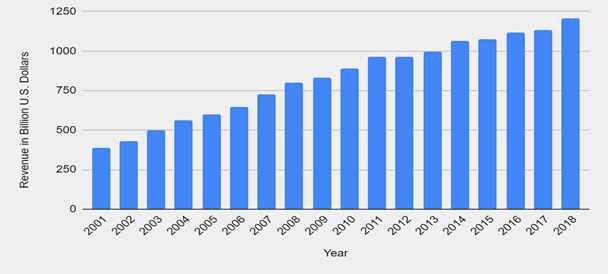Artificial Intelligence: Something big is about to happen in the Pharma Industry

Have you ever wondered how advanced our pharmaceutical industry is at present? The history of the modern pharmaceutical and biotech sector dates back to the time of Apothecaries where medicines were provided based on some folk knowledge. It was only by the end of the 19th-century, pharmaceutical chemistry and pharmacology as a scientific field came into existence. Eventually, pharmaceutical firms in collaboration with laboratories started doing research on dyes, immune antibodies that would react with disease-causing organisms. Subsequently, Paul Ehrlich, a Noble prize-winning physicist who worked on hematology, immunology, and antimicrobial chemotherapy in 1906 postulated the concept that synthetic chemicals could selectively kill or immobilize parasites, bacteria, and other invasive disease-causing microbes. It still continues to drive a massive industrial research program to the present.
At present pharmaceutical revenues worldwide is more than one trillion U.S. dollars, according to a report by Statista.

In the past, we were relying on human intelligence to carry out research in the field of Pharma. But of late things seems to look different. With the sudden rise in demand for Artificial Intelligence technology, the pharma industry is showing some signs of further advancement. Artificial intelligence can be applied in the pharma industry to make use of automated algorithms that can assist in performing tasks such as new drug development, testing of the drugs, and so on. By embedding data into the algorithms, machines can extract the information and apply it to solve the problem. Machine Learning, a subset of Artificial Intelligence, has been gaining momentum in the past few years. Machine learning is nothing but a computer system modeled based on the human brain. It provides machines with the ability to learn from experiences like how a human being learn without being programmed explicitly.

The core thing needed for successful implementation of Machine Learning is data. Data alone is of no use. Making use of the data accurately and effectively can help us reach great heights.

Researchers are finding new and innovative ways to use these powerful Machine Learning and AI technologies to accelerate drug discovery and solve some of the complex problems existing in the pharma industry.
From the primary screening of drug compounds to the forecast of the success rate of a drug, Machine Learning has a lot to do. Drug discovery and testing take a very long time. To test compounds against samples of diseased cells would require some time. Machine-learning algorithms can be put to use to analyse large samples and thus speeding up the process. AI can be used to carry out research in the field of cancer drug development. Deep-learning models can be used to detect or predict how a drug will respond with a tumor. Effect of the drug on the tumor as well as on the person can be predicted and based on the prediction, new combinations of drugs can be developed. According to a report by the WHO, One in 5 men and one in 6 women worldwide develop cancer during their lifetime, and one in 8 men and one in 11 women die from the disease. With such a situation prevailing in the world, any solution or drug that can cure people of this deadly disease will be a blessing.

Researchers are using advanced AI technologies to speed up the development and deployment process. Thus the overall cost of drug development decreases. With the reduction in development cost, drugs would be available for the patients at an affordable and cheap price.
AI technologies can even be used to halt a disease progression helping in providing personalized medicines to the patients. A person’s clinical profile can change over time. With a correct record of data, advanced technologies can rapidly identify the right dosage of a drug that would result in the best possible outcome.
AI programs with the capability to analyse vast sets of data can generate interpretations at a faster rate than what humans can do. Complex biological data can be analysed at a quicker pace, which was once done with a lot of human effort. Combination of machine learning, natural learning and text analytics can be used to analyse unstructured data. AI computing provides the luxury of generating and testing new interpretations at a faster rate, which would not have been possible without such powerful computing resources. With lower risk, more effective results can be achieved within a short time. Since most pharma companies spend a lot in drug development, the use of AI in drug development can help save them a lot of money also.
Clinical trials help investigate the effectiveness of new drug treatments, new drug combinations. AI can reduce the number of clinical trials needed to arrive at a meaningful conclusion. It can be considered as one of the most significant benefits of AI for the pharma industry. Artificial intelligence, with its ability to predict the interaction of drugs with the targeted patient, will reduce the number of clinical trials by 70%. Most clinical trials conducted today are without any direct input from the patient. With the advancement in technology, it would be easier to collect data from the patients. With the availability of Big Data, Machine Learning technologies can be put to use to lessen the probability of an adverse reaction caused by a drug. Thus the chance of getting rejected by regulators will also reduce.
Even though there are lots of possibilities for AI in the field of the pharma industry, some particular reasons tend to push back these possibilities a bit. As mentioned, data is the crucial factor needed for successful predictions. Most of the data stored in silos are accessed via different platforms. Having proper access to the data remains the critical factor in determining the effectiveness of machine learning algorithms. Since the data is stored in silos and is accessed through different platforms or mediums, we can’t be sure about how good or genuine is the data. Analysis of the wrong data set can create a lot of issues in the prediction.
We are still at infant stage as far as AI in pharma industry is considered. With more and more research and studies being conducted in the field of data analysis and AI, we can be sure that Artificial intelligence will help make our lives easy by bringing changes to all the different sectors in the world.
Author Bio
Sandra Moraes is the Content Management Specialist at Datahut. Professionally she is a Data Scientist and researched Data Analytics. She authored on Data Science and Customer relationship.

